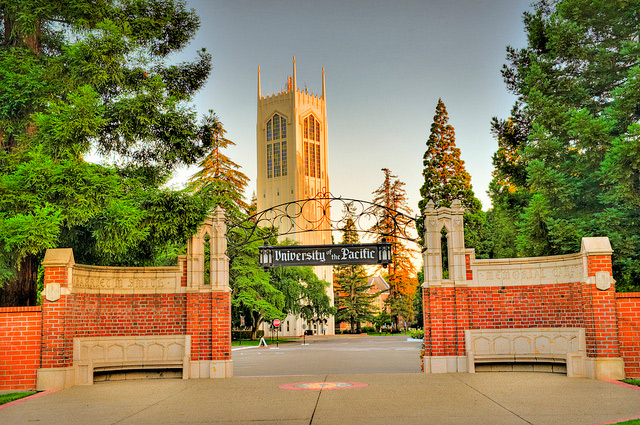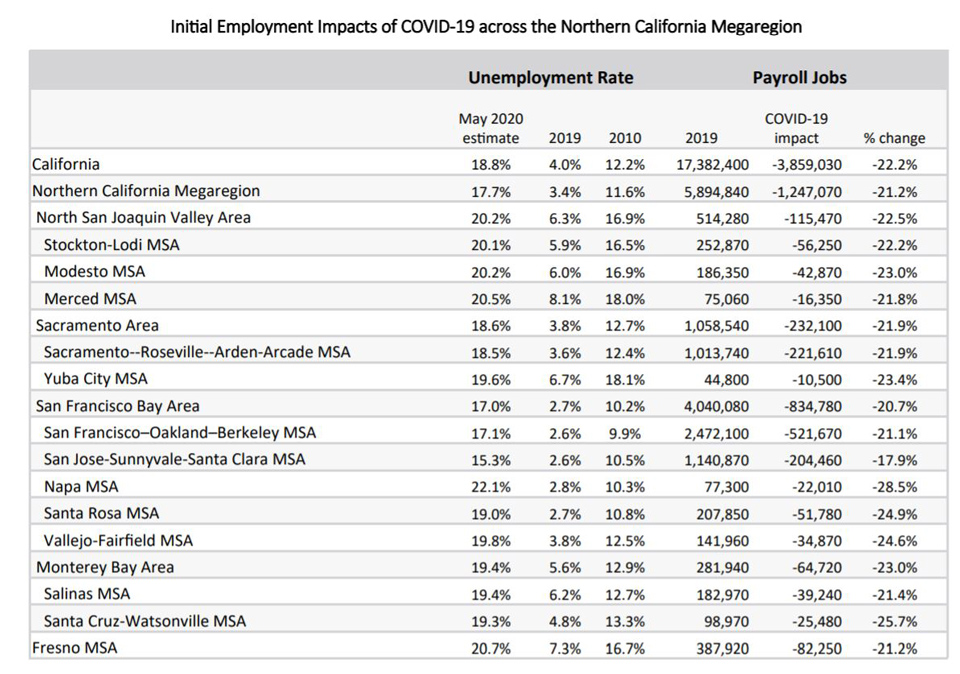
University of the Pacific - Credit: University of the Pacific
April 9, 2020 - COVID-19 will lead to record high unemployment rates across Northern California by May, according to the Center for Business and Policy Research (CBPR) at the University of the Pacific. The center estimates the loss of 1.25 million jobs and a peak unemployment rate of 17.7% in Northern California and a statewide loss of more than 3.8 million jobs with an unemployment rate of 18.8%.
Impacts will vary across Northern California Metro Areas, although all areas will set new records for unemployment and job loss. Due to its heavy reliance on travel and tourism, the Napa economy is the hardest hit with a projected 29% loss in jobs and a peak unemployment rate of 22%. The tech-oriented San Jose economy will see the smallest economic losses with a projected 18% decline in jobs and a 15% unemployment rate. The North San Joaquin Valley and Sacramento areas will see impacts close to the statewide average with unemployment rates of 19-20%, and about a 22% loss in jobs across these inland regions.
The report also finds that the benefits of stay-at-home and social distancing policies are worth these significant economic costs, and cautions against using these projections to argue for ending these necessary public health regulations. The report does not forecast the path for economic recovery. To estimate the impacts, the CBPR used a bottom-up approach based on occupational risks and the distribution of occupations across local economies with adjustments for self-employment and regional commuting patterns.
The full report and one-page factsheets for Northern California MSAs are available online.
The CBPR was founded in 2004 as the Business Forecasting Center. The center is a joint program of the Eberhardt School of Business and the McGeorge School of Law programs in public policy and has offices at the Sacramento and Stockton campuses. For more information, visit Go.Pacific.edu/CBPR.
Source: UOP/CBPR









